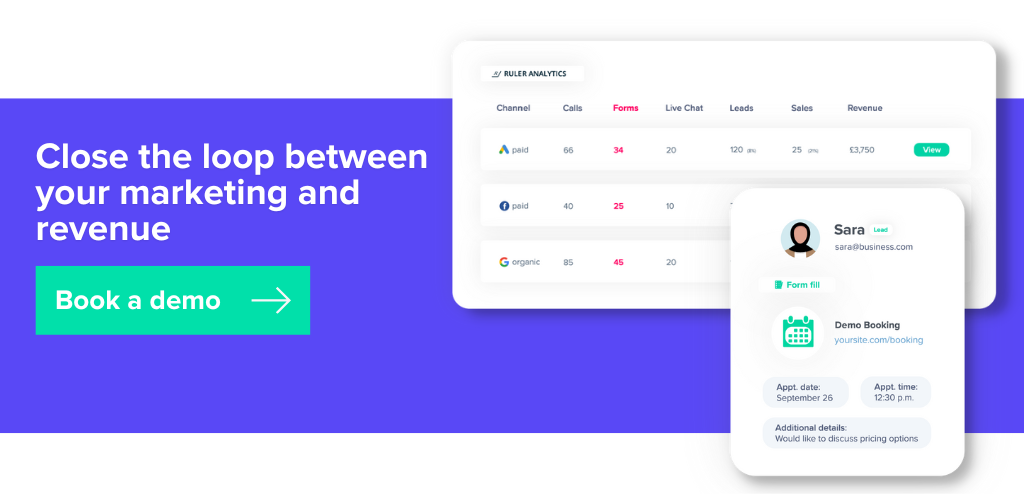Once you find the right marketing attribution software, you can expect to uncover additional insights that will help you optimise your campaigns for maximum revenue.
Marketing attribution is a significant challenge for all data-driven teams, and successfully attributing pipeline generation to channels can be difficult without the right tools and technology.
It’s so challenging that only 17% of advertisers look at the performance of their digital channels holistically.
Despite the challenges associated with successful marketing attribution, do it right, and you’ll gain access to actionable insights that will positively impact your traffic and revenue.
When it comes to attributing conversions to your channels, marketing attribution tools are the best way to go.
But, with so many options available, it can be pretty overwhelming to figure out which one is right for the job.
To help you get started, we’ve listed some of the best marketing attribution software and tools designed to help you work more effectively and increase ROI.
For this article, we’ll discuss:
Attribution tool that tracks your touchpoints and attributes revenue 👇
Ruler is an attribution tool that attributes leads, opps and revenue to your marketing. It tracks visitor journeys, from the initial touchpoint to conversion. When a visitor converts, their marketing touchpoint data and conversion details are sent to your CRM. Once a lead is closed, their revenue data is fed into Ruler, allowing you to use various multi-touch attribution models to attribute revenue to different touchpoints in a way that makes sense for your campaigns.
Book a demo and find out more
Marketing attribution tools help businesses understand which marketing efforts are most effective by tracking and attributing credit for sales or conversions to the various touchpoints in the customer journey.
Touchpoints can include online and offline advertising, email campaigns, social media interactions, and more.
Attribution tools work by tracking customer interactions with different marketing channels and assigning a value or “credit” to each touchpoint.
These values are then used to determine the overall effectiveness of each marketing channel.
With the right marketing attribution tool, businesses can answer the most complex questions commonly asked by executives and clients, such as:
Marketing attribution tools generally fall into three categories: single-touch, multi-touch and marketing mix modelling. But what are the main differences among these categories? Let’s take a close look together.
Single touch attribution tools are used to attribute credit for a conversion (e.g. a sale or lead) to the first or last touchpoint a customer had with a business.
This type of attribution is often used to pinpoint the marketing channels that are most effective at driving initial engagement.
While single-touch attribution is a handy tool for tracking the effectiveness of a single marketing channel, it does present more cons than pros.
First, single-touch attribution doesn’t provide a full picture of the customer journey and thus can make it difficult to identify key trends and patterns in customer behaviour.
Second, it can lead to an over-investment in lower-performing channels, as they are given credit for conversions even if other channels played a more significant role.
Multi-touch attribution software allows you to attribute credit to multiple touchpoints in a customer’s journey, so you can better understand the effectiveness of your marketing channels holistically.
It uses advanced statistical models to analyse customer interactions across different channels and touchpoints, such as email, social media, and web pages, to determine the impact of each on a conversion.
In most multi-touch attribution tools, you can find the following models:
MMM isn’t new. It has been a popular media planning and buying tool since the 1950’s.
However, MMM has seen a re-emergence in digital due to the challenges we face around Apple’s ATT and third party cookie tracking.
Marketing mix modelling is a statistical technique used to analyse and optimise various elements of a company’s marketing strategy to determine the most effective and efficient combination of tactics.
Unlike multi-touch attribution that relies on click path data, MMM uses multivariate regressions to predict how much of an impact specific marketing and sales tactics had on ROI.
It typically involves analysing data on various marketing inputs, such as advertising spend, pricing, distribution, and promotions.
One standout benefit of marketing mix modelling is that it attempts to measure the influence of less measurable marketing channels, such as TV, radio, social and newspapers.
There are some great benefits to looking more closely at marketing attribution, and the tools and software we’re going to look at will help you make the most of them. Here are three key benefits:
1. Gain a source of truth on what’s working. Attribution software will help you quickly identify your most effective marketing channels. When it comes to managing your budgets, you’ll be able to spend more resources on the channels that have the most impact and reduce spend on those that aren’t providing value in the customer journey.
2. Discover how many touches your leads need before converting. If you just launched a new ad campaign or published a new piece of content, it can be disheartening if you don’t see conversions build up quickly. 12% of inbound marketing budget cuts are a direct result of no proven channel ROI. Marketing attribution software will help you prove the ROI of your channels, even if your leads only engage with them once or twice, at the start or middle of their buying journey.
3. Get data-driven insights to improve marketing strategies. With marketing attribution software, you can reveal which lead generation techniques are having the best impact on your ROI and allocate your budget accordingly.
💡 Follow Katie on LinkedIn for tips and tactics on attribution, analytics and all things digital marketing. Don’t forget to say hi. 👋
Marketing attribution tools will help optimise future marketing campaigns and budgets. Each platform has unique features, capabilities, and benefits. Let’s take a look at what they are as we explore the top marketing attribution tools and software for 2023 and beyond.
First on our list is Ruler. We may sound biased, but once you see it, you’ll understand why.
Ruler is a marketing attribution tool that tracks the entire customer journey at the visitor level on a first-party basis, including the marketing source from each session, page views, UTM variables, Click IDs, and Cookie IDs.
When an anonymous visitor converts into a lead, Ruler matches the user’s details to their marketing touchpoints and sends the data to your CRM.
This allows you to enrich your leads and opportunities with attribution data so you can see exactly how your marketing impacts pipeline generation.
Once a lead closes into a deal, the revenue amount is fed back into the Ruler dashboard. This allows you to leverage various multi-touch attribution models to determine the true impact of each marketing touchpoint on revenue.
Ruler breaks free from traditional attribution modelling that solely focuses on click-path data and employs statistical machine learning to uncover the invisible touchpoints that influence customer journeys.
This advanced approach empowers Ruler to accurately predict the point of diminishing returns, allowing you to optimise your marketing budget for maximum ROI.
Ruler offers several features that provide valuable insight into the ROI of your marketing spend and marketing performance.
Pricing for Ruler starts at £199 a month. You can save 20% by paying annually and there are also discounted rates for agency partners.
💡 Pro Tip
Want more information on Ruler and the services we offer? Book a demo to see Ruler in action and learn how it can help evidence your marketing’s impact on revenue.
Book a demo of Ruler
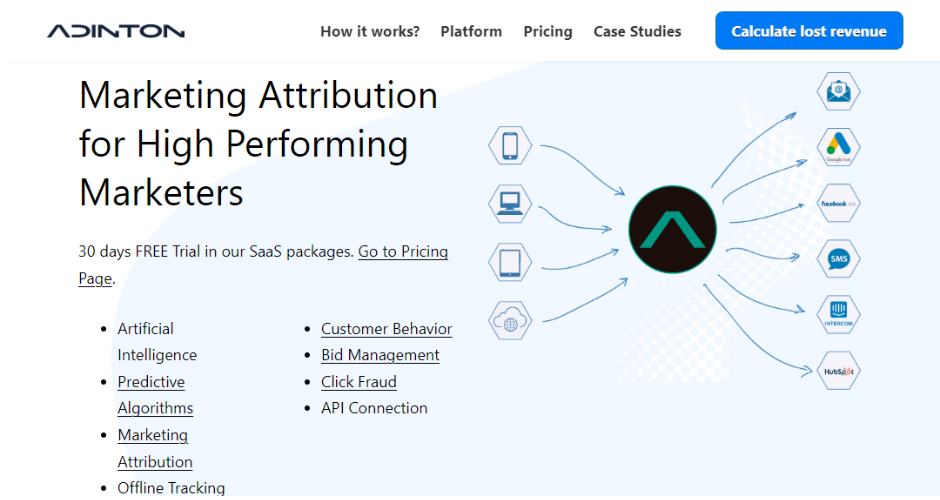
Adinton is a complete marketing optimisation suite, and it includes tools to help with your marketing attribution.
The tool tracks your marketing spend, clicks, and conversions, and then reports back to you on how effective each channel was with information on whether you under or over-invested in various channels.
Once the data is collected, Adinton helps you take steps to improve your campaign performance and use your marketing resources in the most effective ways.
They also compile cross-device, cross-domain, as well as offline data, to help you see the full picture.
Adinton offers three pricing plans to meet the needs of businesses of all sizes. All plans include unlimited accounts, unlimited users, marketing attribution reports, optimisation reports, customer intelligence, and time evolution reports.
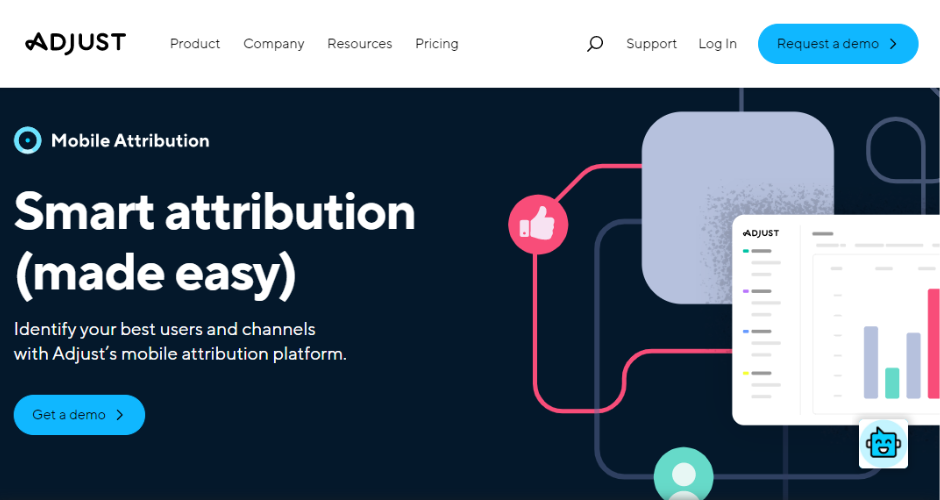
Adjust is a mobile attribution platform to help you grow your mobile app with actionable data.
The Adjust platform is powerful. You can see which ads led to which conversions, down to the ad creatives that your users saw.
Unlike many other tools, they’ve built an anti-fraud system into their platform to ensure that your data and budget is safe and never misrepresented.
They integrate directly with over 2,000 advertising partners so you can easily set up and start capturing your campaign data.
Adjust offers a scalable pricing model based on volume, ensuring you only pay as you grow. There are no hidden fees, and you can start with their free Base plan, which includes up to 1,500 monthly attributions.
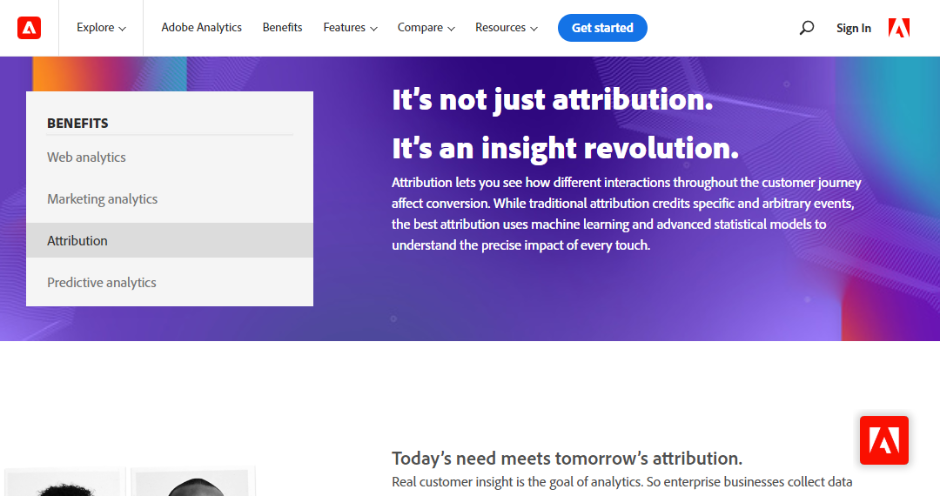
If you’re in the Adobe ecosystem already and plan on staying there, then Adobe Analytics‘ built-in Attribution modelling tools are a great option.
Adobe Analytics includes all the functionality you’ll need, including advanced statistics and machine learning, to help you and your team determine just how effective your marketing is, and show you exactly how your customers become purchase-ready.
If you want to use Adobe Analytics for your marketing attribution, you’ll need to receive a custom quote from them, based on your traffic levels and requirements.
Adobe Analytics pricing is based on a tiered model based on the number of monthly tracked visits. There are three main tiers: Select, Prime, and Ultimate. The pricing for each tier is variable and depends on the specific number of tracked visits.
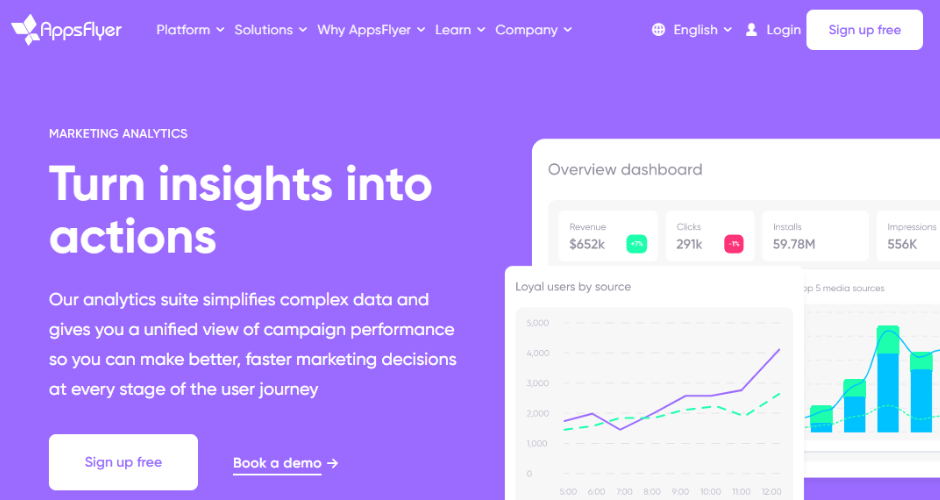
If your business revolves around a mobile app, then Appsflyer is for you.
As the name suggests, Appsflyer is a marketing attribution tool for mobile apps and helps marketers attribute their app installs to touchpoints across the web.
This will help you optimise your campaigns and attribute conversions to the channels you’re promoting your product on, including the app stores, Facebook, Google Ads, TV, email, or organic traffic.
AppsFlyer offers a tiered pricing model based on the number of monthly tracked conversions. Their basic plan, Zero, is free and includes up to 10,000 monthly tracked conversions. For businesses that need more than 10,000 monthly tracked conversions, AppsFlyer offers three additional plans: Cloud, Enterprise, and Premium. The pricing for these plans is based on a custom quote.
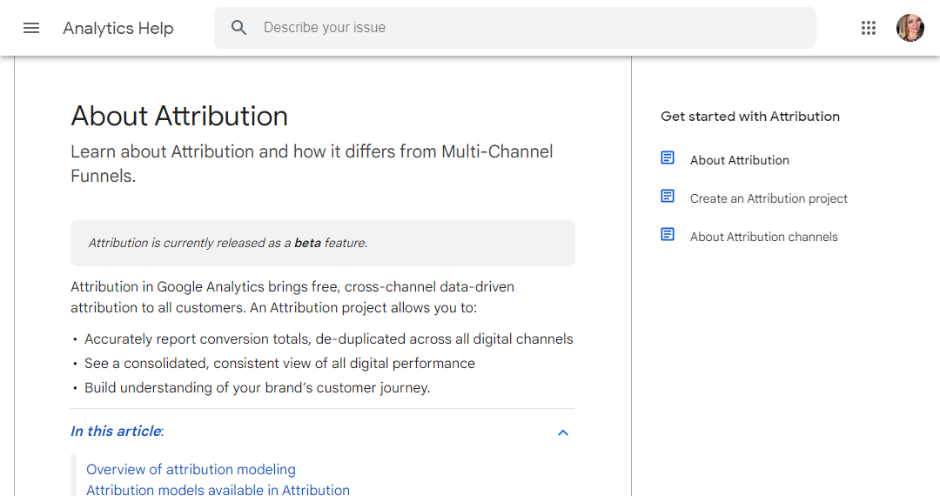
Google’s Attribution feature is still in Beta, but if you regularly run campaigns on Google Ads and don’t have the budget for other attribution tools, this is a great option.
It’s part of the Google Analytics ecosystem, and Google Attribution provides additional insight into your Google Ads performance.
It’s available to all advertisers for free. As you would expect from any attribution tool, it helps you understand multi-click and multi-channel journeys in a way that’s impossible to do manually.
You’ll be able to make smarter decisions about your ad targeting to ensure that your campaigns bring the best results.
Google’s attribution models are available to all Google Analytics users at no additional cost. Businesses that need more advanced attribution features can purchase a Google Analytics 360 subscription.
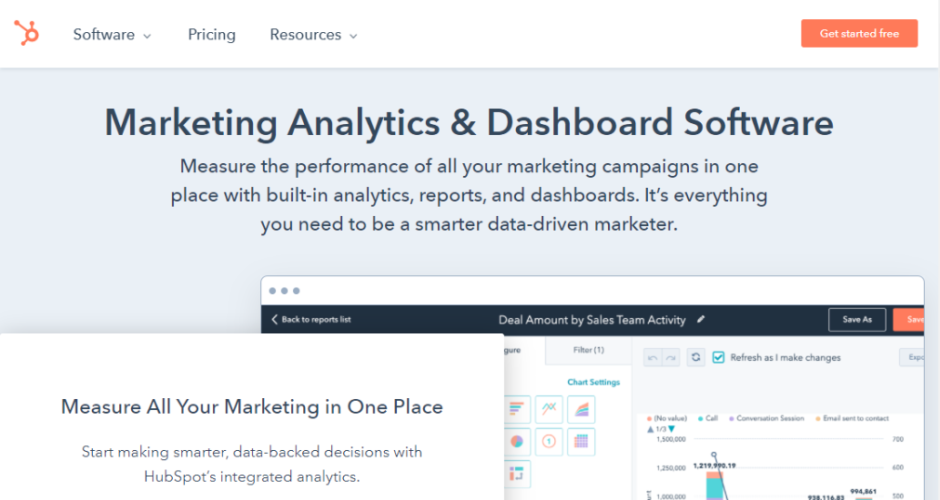
Most of you have likely heard of HubSpot. It’s a leader in sales and marketing automation. But, it’s also making waves in the attribution space.
HubSpot Analytics connects your CRM and marketing data, allowing you to credit different touchpoints at every stage of the customer journey.
With its attribution reporting, you can identify which specific channels are moving the needle on revenue and make smarter decisions to improve your marketing performance.
HubSpot Attribution is part of the HubSpot Enterprise plan, which starts at $2,400 per month.
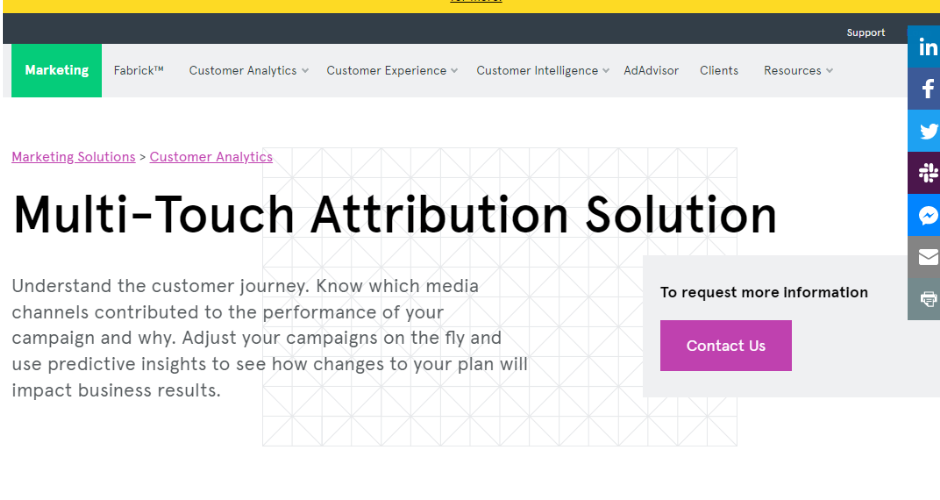
Investing in offline campaigns? Neustar is for you. Neustar’s multi-touch attribution software helps marketers monitor the results of both their online and offline campaigns.
It allows marketers to fully understand their customer journey, and identify what impact their omnichannel campaigns are having on their conversions.
With the data Neustar provides, you’ll be able to optimise your campaigns in real-time and make the most of your budgets.
Neustar does not publicly disclose pricing for its services. The company offers a variety of products and services, and pricing is based on individual needs. To get a quote, you need to contact Neustar.
🚀 Pro Tip
Do you know which digital marketing channels are driving your most valuable offline sales? Download our eBook on offline conversion tracking and learn how to connect the leads you generate online with the sales you convert offline.
Download the guide to offline conversion tracking
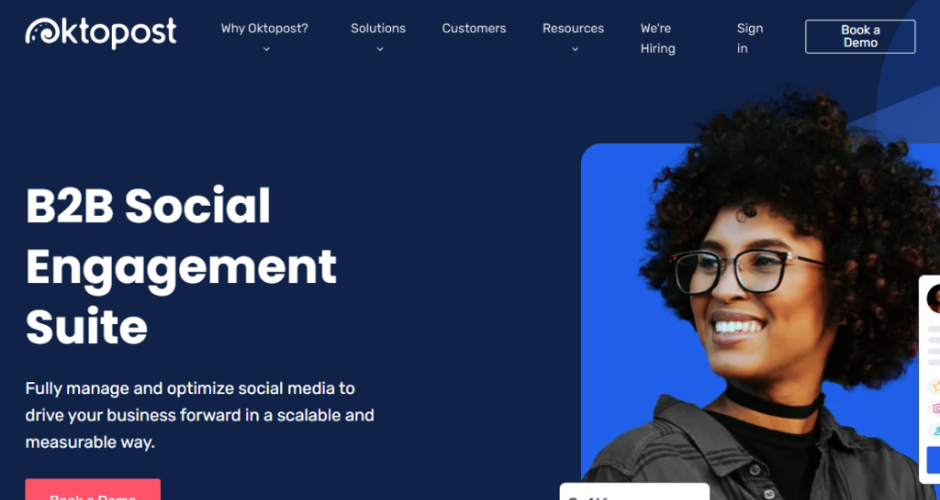
Oktopost is a social media distribution and attribution platform for B2B marketers.
It integrates with popular marketing automation platforms like Marketo, Eloqua, and Act-On, and enriches your leads with the data it collects.
Instead of waiting, hoping that your social media efforts are paying off, Oktopost will show you whether they’re working or not.
So, you can either refocus your energy or double-down on what’s working.
You can track leads back to the original social media post they saw and engaged with, and get insights on how your campaigns are performing as a whole.
Oktopost doesn’t publicly disclose pricing for its plans, and prices are tailored to the specific needs of each customer. To find out the exact pricing, it is best to contact Oktopost directly.
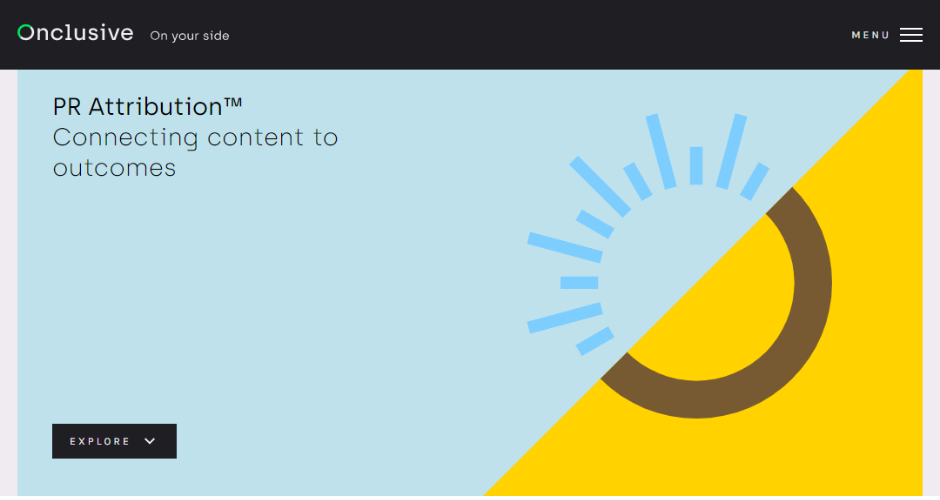
If your company is investing in PR, or regularly being featured in publications around the world, then Onclusive is for you.
Onclusive is a PR analytics and attribution tool that improves how your brand communicates with the world.
Rather than merely monitoring brand mentions, Onclusive lets you see the impact those mentions are having and provides insight into how you can amplify and optimise your media mentions to grow your visibility.
If you want PR to act as a lever for growth, then this is the perfect tool.
Onclusive offers a tiered pricing model that is based on the number of users and the level of features that you need. They don’t publicly advertise pricing, but expect to pay anywhere from £4,999 per month.
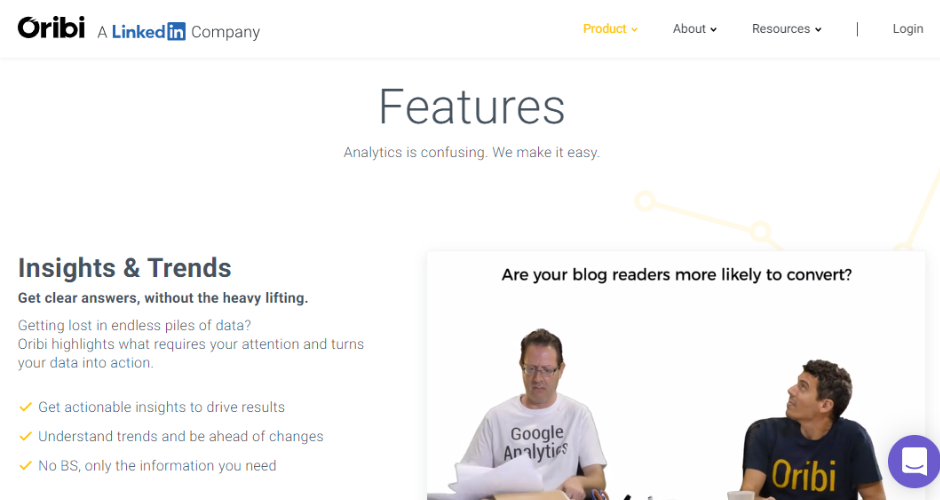
Oribi is an all-in-one analytics and attribution tool, and a good alternative to Google Analytics.
You’ll have access to much of the same data as you would in Google Analytics.
Although, Oribi breaks your data down into actionable insights, rather than simply displaying it and leaving you to do the reporting work.
Oribi’s marketing attribution features allow you to see your data in different attribution models.
You can view the touchpoints involved in your conversions to help you optimise your marketing and acquisition strategies.
Oribi offers a tiered pricing model based on the number of monthly tracked visitors. The pricing starts at $299 per month for up to 100,000 monthly tracked visitors, and goes up to $1,999 per month for unlimited monthly tracked visitors.
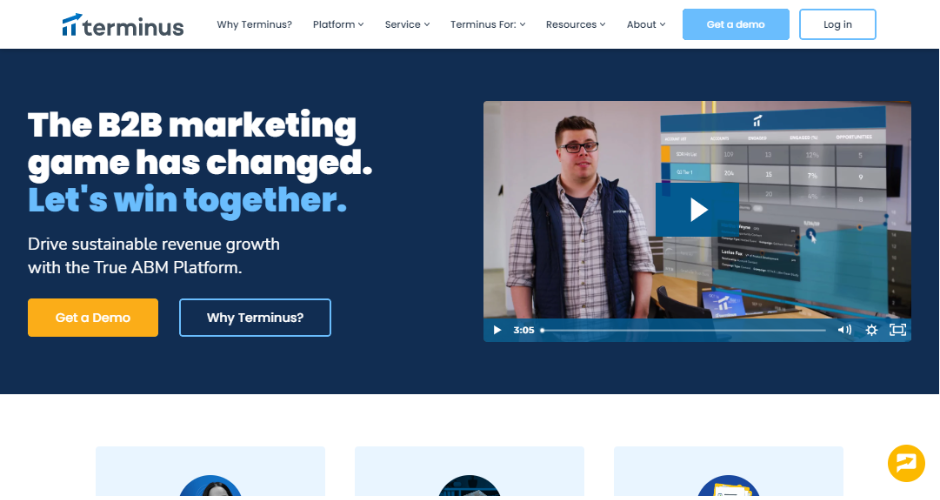
Terminus is an account-based marketing (ABM) platform that includes robust marketing attribution capabilities.
For smaller businesses, Terminus may be too much. But, for bigger teams running ABM campaigns, it’s a serious piece of software.
Terminus contains a range of features to help with your ABM workflows, but the analytics section is powerful and detailed.
You’ll be able to see information on how your various campaigns tie back to revenue, and how effectively they work.
Terminus offers a tiered pricing model based on the number of users and the level of features that you need. It offers a 14-day free trial so you can try it out before you buy.
Finding the right multi-touch marketing attribution software can take time.
We recommend speaking to your marketing and sales team to understand their needs and what your tool needs to do for you.
One thing is for sure, once you start using your marketing attribution tool, you can expect to uncover insights that will directly impact your marketing operations, revenue, and growth.
And that’s all anyone working in sales or marketing wants, right?
Remember, with Ruler, you’ll gain access to a whole world of jaw-dropping information about your website visitors and marketing campaigns.
You can track your lead’s activities across the full customer journey and pinpoint exactly which marketing tactics are moving the needle on revenue.
Kickstart your marketing efforts today with one of the tools above, or, book a demo with Ruler Analytics now to start tracking your customer journey across multiple touchpoints.
